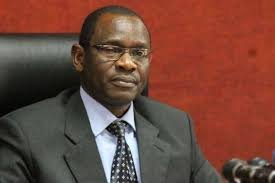
The courts have upended President William Ruto’s new university funding model, forcing his administration to rethink a plan that has left many students unable to pursue their studies due to high costs.
Introduced on May 3, 2023, the model sought to distribute financial aid to university and TVET students based on household income.
However, on February 24, 2025, Justice Chacha Mwita struck it down, calling it unconstitutional, discriminatory, and lacking a legal basis or public input.
Justice Mwita condemned the government’s attempt to shift the funding burden onto parents, insisting that public universities must be state-funded. He ruled that the model violated the Constitution, including Section 53 of the Universities Act, which mandates a legally established funding system developed through public participation.
“This model allocates higher education resources without a proper legal foundation, clashing directly with the law. It lacks statutory backing, and its structure and processes are unclear,” he said.
The court barred Education Cabinet Secretary Julius Ogamba, the Attorney General, the Higher Education Loans Board, the Universities Fund Kenya Trustees, and the Kenya Universities and Colleges Central Placement Service from enforcing the system until legal requirements are fulfilled.
Also Read: Aga Khan University Hospital Launches Kenya’s First Cholesterol Disorders Clinic
The ruling came in response to a petition from groups like the Kenya Human Rights Commission, Elimu Bora Working Group, Boaz Waruku, and the Students Caucus.
Justice Mwita held grounds that public interest hinges on lawful action.
He also called out the Higher Education Board, the Education CS, and the Attorney General for inconsistency—pursuing an appeal to suspend his ruling while claiming intent to comply.
He warned that pausing the judgment would perpetuate an already unconstitutional system, undermining the rule of law.
“The new funding model introduces a specific allocation of higher education resources without a proper statute, creating a funding mechanism that is in direct conflict with the law. The model, as it stands, is not anchored in any law. Its composition and its procedure remain unknown,” Justice Mwita stated.






Valuable info. Lucky me I found your site by accident, and I’m shocked why this accident didn’t happened earlier! I bookmarked it.